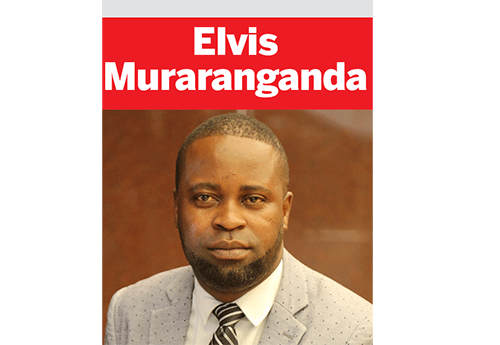During my years as a mainstream journalist – from a rookie reporter in 2009 to the responsibility of manager of editorial services in 2019 – I have always girded my work ethic on seven basic principles of journalism in being true to my duties as a member of the Fourth Estate.
These principles include being a voice for the voiceless; representing communities and diverse perspectives; being a watchdog; holding the powerful and big businesses accountable, as well as entertaining and inspiring. My mentors along this professional journey have continuously implored me key building mantras: Will that story inspire positive change in people’s lives? How does it benefit your reader? What is the public interest in that story?
These have been my point of departure for any story I was to do, and it is these same principles that I used as a blueprint, yardstick and checkboard in my newsroom managerial work.
That is the school of journalism that I hail from; hence, I am left flabbergasted and in astonishment when I read some storylines, especially the latest concerning the just-concluded 43rd SADC Ordinary Summit in Luanda, Angola, at which His Excellency President Hage G. Geingob handed over the chairmanship of the SADC Organ on Politics, Defence and Security Cooperation, a critical body in regional integration efforts as a bloc.
Any Namibian would be proud to learn that under the leadership of President Geingob, this body intensified efforts for peace and security in the region. However, as local media, we chose to trivialise the President’s health against informing Namibians about the importance of political and social stabilities in neighbouring countries within the regional bloc, and how that affects bread and butter issues in their lives.
Be that as it may, let me refer to the principles I shared above, which all would agree that the allegations that the head of State “almost” fainted, with no portfolio of evidence – not even from the circulated video – do not meet the standards of serious journalism, and that it is being brewed from an unsafe space of sensationalism.
It is perplexing and disconcerting to justify that piece of reporting against the facet of being a voice for the voiceless or representing communities and diverse perspectives, being a watchdog or holding the powerful and big business accountable, which are the important tenets of any form of real journalism.
In whose interests are these allegations? What are we trying to achieve with these claims? Who will these assertions benefit?
I do not see any public interest in this matter to merit such unfounded reporting, especially when the Presidency itself has always been open about the initial aortic valve procedure and the routine checkups. Why would the Presidency now hide the fact that the President is not feeling well? To whom does that make sense? Who would that benefit?
The manner in which we ridicule our leader in front of the global community, especially when they are tasked or to be tasked with matters of regional or continental importance is unbelievable, especially when we expect Namibia to be a respected global player on the various fronts.
How do we take up our space in the world community if we are forever and deliberately so constantly insulting, misquoting and painting a false picture of incompetence, ailing health and other ills towards our leader?
As journalists, we do not live in utopia; we live here in Namibia with everyone else, noticing many positive aspects that are hitting the pockets of average Namibians, including the pickup in the tourism sector, which will see many return to their jobs – from cleaners, concierges, labourers, cooks, waiters, tour guides and others, following the devastating joblessness due to the Covid-19 pandemic.
Are those not more positive and life-changing aspects of our nation that need massive media backing and promotion? That is being a voice for the voiceless, representing communities and diverse perspectives and even being a watchdog for the small guy in this area and many others that are positive.
Why have we become allergic to the positive and merely concentrate on matters with a dark connotation? Is this the Namibia we want to show the world, investors and potential visitors?
I believe we have forgotten what journalism is all about and have resorted to bending ethics in our own interest, a blame I squarely place on the gatekeepers in newsrooms.
Happy Heroes’ Day, Namibia!
* Elvis Muraranganda is an alumnus of the China-Africa Press Centre fellowship programme, a media personality with over 13 years of experience and a communications consultant.


